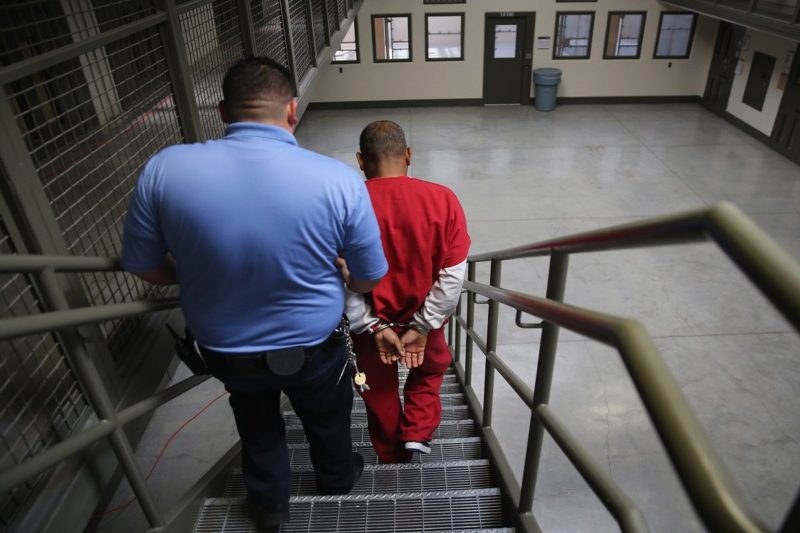Gavel Drop: Spotlight on Prison Cases From Arizona, California, and Nebraska
A California prison psychologist says she faced retaliation and demotion for reporting abuse of gay and trans inmates.

Welcome to Gavel Drop, our roundup of legal news, headlines, and head-shaking moments in the courts.
Chris Geidner writes for BuzzFeed that one of the Obama administration’s top lawyers has filed an appeal with the U.S. Supreme Court that might cause the Court to re-evaluate the death penalty’s constitutionality. Neal Katyal—the former acting solicitor general known for recently spearheading Hawaii’s challenge to President Trump’s travel ban, among other legal causes—is asking the high court to take the case of an Arizona death row inmate, Abel Daniel Hidalgo, who argues that the state’s death penalty law in Arizona is unconstitutional because it doesn’t do enough in winnowing down those who are eligible for the death penalty among people convicted of murder.
Lori Jespersen, a psychologist at a prison in Vacaville, California, has filed a lawsuit against the state. She alleges that correctional officers locked her in a confinement area with a convicted rapist, left her among inmates without supervision or a way to call for help, and once told inmates, “She needs to be reminded where she’s at.” Jespersen argues that some of the incidents and her demotion were retaliation after she complained that staff mistreated or were complicit in the abuse of gay and transgender inmates at the facility.
The ACLU has filed a lawsuit describing crowded facilities and a shortage of correctional officers and mental health workers at Nebraska prisons as a “humanitarian crisis.” Nebraska has the fourth most crowded state prison system, with inmate capacity hovering at about 160 percent. This crisis has been ongoing for more than 20 years, and the ACLU has long threatened to force improvements through the courts. Last week, the ACLU made good on its promise, bring suit on behalf of 11 plaintiffs, all of whom have medical conditions or disabilities that have gone without appropriate care. Ultimately, the ACLU wants to reduce the prison population through, for example, alternatives to incarceration including better parole and probation systems.
The City of St. Louis, Missouri, has settled a lawsuit with more than 130 black firefighters and the Firefighters Institute for Racial Equality. The firefighters claim that the city’s promotional exams for captain and battalion chief positions were racially discriminatory. The settlement requires that future promotional exams “not unlawfully discriminate against any promotional candidate or candidates on the basis of race” and stipulates more diversity on the panels that administer oral exams to some candidates.
Attorney General Jefferson Beauregard Sessions III gave an alarmist speech last week at the 2017 Gangs Across the Carolinas Training Symposium. There, he spoke about national and transnational gangs such as MS-13 and the increase in gang-related violence in North Carolina and nationwide. Notably, as he spoke about the supposed crime wave engulfing the nation, he spoke only of crimes committed by people of color and said nothing of far-right domestic terrorists, including white supremacist and neo-Nazi groups. (No surprise there, however: After all, the Trump administration has decided to ignore the violence that far-right groups commit in order to focus exclusively on Islam.) More alarmism from our “Law and Order” attorney general about “rising crime” that flies in the face of the evidence: Although the murder rate rose nationally in 2015 and is going up in some cities, it’s low when compared to previous decades’ rates. But facts are nothing when it comes to ginning up a Black and brown panic.

